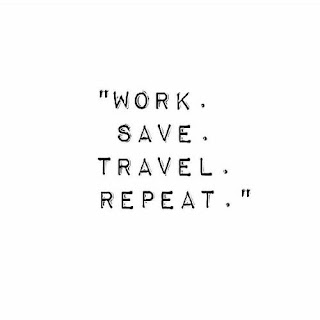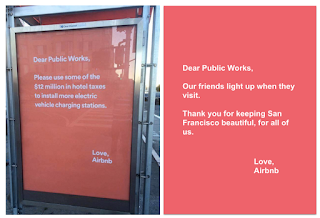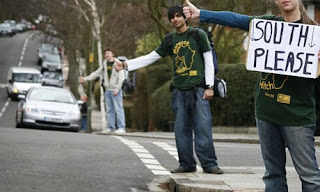Recently I wrote about the “hot-topic” or the buzzword “Universal basic Income“. I believe my interpretation of that article is that I do not support it; as of today :). We will see how the future has in its baggage for me. Today’s topic is also on the similar notes, “Sharing economy“. Interestingly, I put this article I my list months before UBI, but somehow I could not bring myself to write about it. Today, as per the locals, is really hot day and they would prefer to stay inside with air conditioners. At just 30 degrees C, I do not find it very hot. I have spent just 1 summer in India in last 9 years that was 4 years ago. Somehow, I am still comfortable with “hot weather”. We keep on asking for sun all those long winter days. Is it really Sun’s fault that it listened to prayers of millions of people? Well, let me stay focused on the selected topic and not get distracted by the weather news. The topic is “shared economy“. For someone who is not sure about, I would suggest to read atleast the wiki link I shared. Ofcourse, the language is moving and our interpretations and models are moving. For that reason some part of it is referred as “access economy” as well. However, my target is to capture in general terms and not get bogged down by specifics.
 |
| What is wrong with this model that we are almost forced to share a bed or travel on a truck? |
As a regular employee earning enough for my comforts, I was used to pay and travel. Did not know about other means of transport or staying. You travel somewhere you pay a public transport or private hire. You go somewhere, need a place to stay, you pay a hotel, hostel, lodge etc. However, when I got restricted with no regular income, I came across new ways. I found that people can just stay by the road, raise their hands long enough, so that someone can stop and pick them to their destination or somewhere on the way; hitch-hiking was discovered. Initially I thought, people really in some strange places where public transports are minimum to none or those who are in some desperate need use this option. Soon, I realized that well-to-do people also use it on a regular basis. People want to travel across the countries and they move from city-to-city by the method of shifting from car-to-car.
 |
| In any such article advise about selling stuff and living on minimum. Why? How do I have something to sell, if I have no money at all! Who is going to stop for me if all are just hitch-hiking? |
I was happy when I found volunteering based travel. It is marketed as cultural exchange. You work for about 4 hours a day and in return you get to stay in someone’s house for free and you get home made food usually for free. Exact details vary based on specific case. You can stay for a week up to months. You get to know the family or community, share your point of views about any general topic. Ofcourse you can visit nearby places as you like in your free time. This sounds just to good to be true; well atleast I felt so when I saw it first. Pure cultural exchange while you help someone get some work done. Travel, homely comforts, cultural exchange; all that while you get the feeling on being kind and helpful. Who can argue with that model.
Similar is the case with Uber and Airbnb. You have a spare room, welcome someone in your home to have cultural exchanges while also earning money. Got a car and some spare time, use it to get extra money. I know computers, you can repair electrical gadgets, so lets just get each other’s problems solved. Why unnecessarily pay someone else money. It does not matter what your skills are, cooking, cleaning, painting, sewing, carpentry, electrician, animal care and so on. List of skills is as long as the things that we can do.
The world seems beautiful this way. As usual this way of sharing economy is also gets tagged as anti-capitalism or probably better than capitalism. An argument to break-free from the chains of excessive prices of taxi corporates or hotel chains. An argument to bring people close to each other rather than merely an exchange of money. So what is wrong with it? Why I am mentioning this anyways. Well, as usual I stand outside this box. I believe that every model is fine as much as it can be theoretically. What makes these models go bad is us, “the people”. The people who always find some fault in other. People who would see everyone else as greedy but themselves. People who like to believe that they are rebel, they are individuals, while mostly they end up moving from one crow to anther crowd. People who would complain about summer and would complain winter as well. People who feel proud sharing “don’t follow existing paths, create your own way”, without realizing that it was the “following-the-paths” that enabled us to communicate to travel, to harvest, to build, to paint, to sing.
Let’s take the case of work-travel based shared economy first. Simply because I know it from my personal experience. While the idea sounds good, but we will have a look at few perspectives. First the host trying to get his work done cheap. There is a lot of work at farms, vineyards, hostels and so on, that does not need any special skills. Host asks a person to get his farms tilled or pick grapes or be at reception or help maintain the place. You work for 4-5 hours a day for 6 days a week (just an example). What does this person has to pay for it? Just food for the day, he already had an extra place to give to sleep. In many cases, it is just a simple room, shared rooms or some would make it sound exotic as open air-tents or natural living etc. However, working in farms, in hostels is a regular work for which people get some money. The money based on which they expect to live and pay for an apartment, buy and cook their meal, send their kids to school and pay taxes. As an individual travelling like this makes it looks exciting and ofcourse it is cheap, but its not without taking away someone’s “regular job”. There are some hosts who would specifically ask for skill e.g. professional electrician, plumber or horse-carer. Otherwise they won’t allow you to visit/volunteer at their place. How different it is than applying for a job where you need to have some experience before you could even get called for interview. So now, you need an experience even for volunteering!
Not to say that all hosts are like that. I work with host, who did not have a single task to do and there is no way to have a regular plan for the work. A family needs a help in their small garden (not a farm), some helping hand during cooking, someone who and stay home to watch for old grandma so that they can finish their outside work without worrying. Hosts that need some help with cooking, some in garden, some in maintaining the place, some help to manage their event. They also take care of you as member, engage in cultural discussions and ensure that you get to see their way of life. For such hosts the problem happens when the volunteers come who are travelling because “they want to help the world”. Of course the basic reason is that this way makes the travel dirt cheap. I saw these “helpful volunteers” staying late in bed, forgetting to do the work when asked, get together and chat rather than finish the work or complain that it is hot or tiring work to in fields or break stones. Interestingly they all read the profile of the host and the project. But, the people coming from cities with idea of “loving thy nature” have no clue that living in nature demands a lot of physical effort, commitment.
When you watch the Airbnb marketing videos, you see the connection between host and guest. They would say it is about making people come together, exchange their culture and so on. However, most of the travelers choose this way of staying because they can get a decent stay at cheaper price than a hotel. They would prefer to be left alone, when the host is staying at another apartment. Host comes only in the beginning to show the place and at the end to change the sheets. How different it is from being in a hotel? Isn’t the host also put his apartment on airbnb as a means to get some easy money? A lot of people have bought apartments just to give on rent. Is it the idea, that you see in the marketing video of airbnb, that is faulty? Or is it just the people on both sides that made it faulty? People find it hard to go out and talk to a stranger and ask about his life. People find it amazingly hard to ask someone to take a photo, but it is quite normal to take a selfie pod. People have become crazy enough that airlines offer to book the next seat, so that you can have “your space” in a plan flying kilometers above the ground!. And these are people who want to go to another house to have a cultural exchange/home stay! Till I met one amazingly friendly lady, I did not know that airbnb ask hosts to offer complementary coffee/snacks in the morning.
I just mentioned so far the people involved directly in this economy and how they try to take advantage of a decent sounding idea. While it sounds good, but they way people use it (knowingly, unknowingly) has much bigger ripple effect. Imagine people asking and working for specialized, regularized work e.g. electricians, receptionists, farm helpers, cooks, cleaning jobs, animal care and so on. These work are paid usually. However, because of this new model, a lot of people did not get paid because someone else was on the “help the world” travel mode. As it becomes a norm, the local skilled guy replaced by travelers, has to move or to find new job or he use this mode of living. But how long and how many people can keep on living in someone’s shared room or tent or a caravan? As the demand-supply pushes this market, hosts and travellers try to find new ways to achieve their individual goals. Websites already work with feedback systems. This feedback also works the same way as professional networks like Linkedin, where it is mutual understanding. One guy leaves a positive feedback and other guy reciprocates as an agreement or just as an obligation.
 |
| source: medium.com/@Weskao- The writes explains her perspective on the arrogance and spread of negative mindset by the new shared economy leaders. |
I did not want to discuss this topic in technical details, as there are many experts who do this job far better than me. My idea was simply to highlight how the social and individual though process. How people keep on blaming the big corporates do not see the negatives they keep on supporting this way. How hard is to imagine that if more and more people follow “travel around the world in 80 dollars”, “hitch hike the world”, “work for food and a tent”, who will be those who are going to create something?; A medicine, a plane, a new car, build a house, build a farming tool and so on. Shared economy is running mainly on someone else’s fuel. There is a saying, the other’s fuel end one day. Individuals behave like pigeons where they close their eyes on the sight of a cat and think there is no more cat as I cannot see it. However, there are corporates as well, who saw the situation, observed the reactions from people and proposed a new paradigm telling people how this will cure the sickness of old system. While people may not see it as individuals, but these (some if not all) companies choose to ignore the cat(s) with open eyes.
Small communities, barbarians, kingdoms, empires, countries, socialism, capitalism or any other -ism, individually or together cannot create a situation everything is green, where everyone is happy, where everyone is satisfied. Even a simple idea can become mess as it moves from an individual to individual. We used to do daily tasks e.g. grinding our own flour, spices, stitching our clothes, making our own sweaters, milking our cow and making our own butter and so on. Big corporates came with beautiful messages and advertisement that made photos of women washing clothes to feel the same as a coal miner, a man working his small farm was made to look like a labourer forced to break stones in scorching summer heat. But they were all appeasing messages. but now we pay for all of those things that we could do ourselves and stay healthy. Now it is the next phase. The old corporates are the messengers of Satan. We need to have shared economy models, silently enabled by other corporates that keep on passing beautiful messages. Maybe it is still not so clear, but look at the balance sheets of Airbnb, Uber and others.
I am happy that on my travel, I mostly met hosts who were kind, sensible, humble and from whom I got something to learn. We shared our experiences, had long discussions and gossips, worked together, travelled together and above all smiled and laughed together. However some can be so special that in their company even a “furious Shiva” or “calm and silent buddha” and create thunders of laughter.
Keep smiling.
Love
Arundeep
Many years ago, the Mulla was traveling on the Silk Road to China when he met George, a traveler from the land of the Franks. They soon became friends and decided to travel together, each pledging to help the other on the long and difficult journey ahead.
Several days later, after traveling through a dreary stretch of arid country, they came to a small town. Since they were both hungry and thirsty, they found their way to the only inn in town. But they had little money left. So they decided to share a bowl of milk. It would quench their thirst and provide some nourishment.
George said to the Mulla, ‘You drink your half first. I have one lump of sugar, and it is only enough to sweeten my half.’ The Mulla insisted that they share the sugar too. However, when he saw that George was not in a mood to relent, the Mulla went into the kitchen and returned with a large lump of salt, and told George that he just remembered that he preferred to drink his milk with salt.
Before the Mulla could add the lump of salt to the glass of milk, George had a change of heart. Smiling, he offered his lump of sugar to the Mulla. One by one, they quenched their thirst with sweetened milk. In addition, the Mulla savored the sweet taste of victory.




